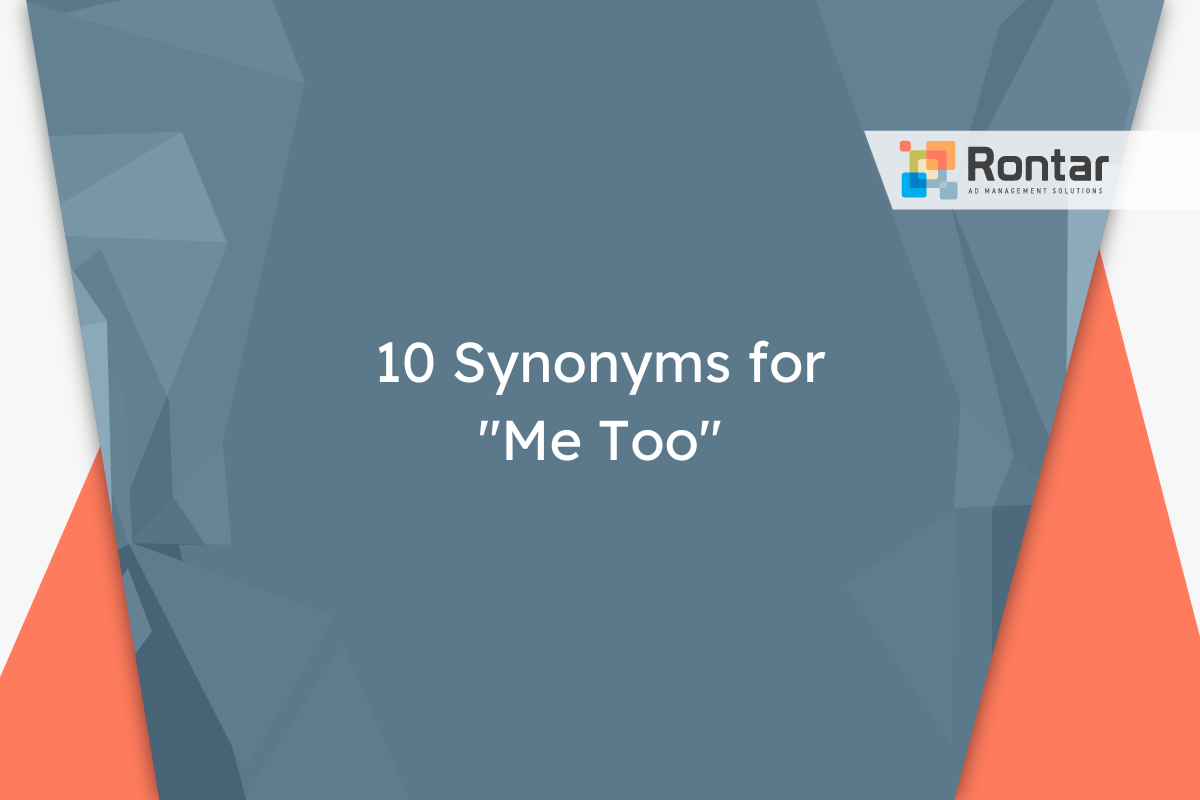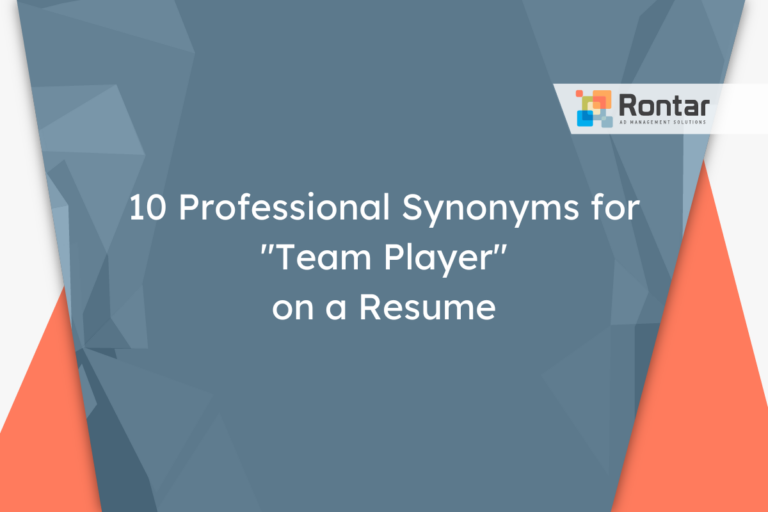10 Synonyms for “Me Too”

In the workplace, saying “me too” can feel too casual or informal at times. This article offers ten alternatives that are more suitable for professional settings. Each alternative is explained, highlighting when and how to use it effectively in emails or conversations.
Is It Professional to Say “Me Too”?
When it comes to the workplace, using the phrase “me too” can be seen as both informal and polite, but not necessarily professional. It’s a casual way to show agreement or share a similar experience. In more laid-back office environments or in conversations with colleagues you know well, saying “me too” might be perfectly acceptable. However, for formal communications, official meetings, or when addressing higher management, you might want to choose a different way to express agreement or shared experience.
This phrase is best used in emails or messages among team members or with colleagues you have a relaxed rapport with. It’s also more suitable for informal digital communication rather than in formal reports or presentations.
Email example:
Hi Alex, Thanks for bringing up the issue with the printing machine, I've noticed that me too. Let's discuss it further in our next team meeting. Best, Sam
Here are the pros and cons of using “me too”:
Pros:
- Shows agreement in a simple and quick way.
- Creates a friendly atmosphere by sharing a common experience or opinion.
- Works well in casual, informal communication.
Cons:
- May not be seen as professional in formal settings.
- Can be too casual for communication with senior management or in official documents.
- Lacks specificity, which might sometimes be needed to clarify the context or extent of agreement.
While “me too” is easy to use and understand, someone might want to look for alternatives to match the level of formality required in certain situations. Using synonyms or alternative phrases can help maintain professionalism and ensure clarity in more formal or mixed contexts. It’s valuable to have several alternatives at hand to tailor your communication more precisely to the situation or audience.
10 Other Ways to Say “Me Too”
When you’re trying to be more polished in your emails, here are ten alternatives to “me too” that can help.
- I agree.
- Same here.
- Count me in.
- I feel the same way.
- That’s true for me as well.
- I’m on the same page.
- Indeed.
- You can say that again.
- That’s my thought exactly.
- So do I.
1. I Agree
Compared to “me too”, “I agree” sounds a bit more formal and professional. This alternative is straightforward and clearly communicates your concurrence with the previous statement. It’s suitable for nearly all professional emails, especially when you want to affirm the sender’s opinion or point without adding extra information.
This phrase works well with both peers and higher management, mainly in email or message formats. We recommend using “I agree” when you want to keep the communication polished but sincere.
Here’s a brief example:
Dear Mark,
I received your update on the project timeline, and I agree, moving the deadline will give us the buffer we need.
Best regards,
Emily
2. Same Here
“Same here” is slightly more informal than “I agree” but still maintains a polite tone. It’s an easy way to show you share the sender’s sentiment or situation. This alternative is suited for conversations with colleagues you have a friendly relationship with or when the email thread is a bit more relaxed.
It’s great for internal emails or instant messages where a more conversational tone is allowed. However, we recommend avoiding “Same here” in extremely formal communications or with clients you’re not familiar with.
Sample email:
Hi Rebecca, Just saw your message about staying late to finish the report, same here. Maybe we can help each other out. Cheers, Liam
3. Count Me In
“Count me in” is particularly informal and conveys enthusiasm to participate or agree with a plan. It implies more than just agreement; it shows a willingness to be actively involved. This alternative is best for messages where you’re being asked to join a project, event, or meeting.
It’s highly suitable for team emails, less formal settings, or when responding to an invitation. It may not be the right choice for formal agreements or with higher management unless the context is very casual.
For example:
Hello Team,
I heard about the volunteering opportunity this weekend, count me in!
Warmly,
Derek
4. I Feel the Same Way
“I feel the same way” is a polite and somewhat informal way to show empathy and agreement. It adds a personal touch to the agreement, making it clear that you share not just a thought but an emotion. This phrase is especially useful in emails where emotional support or personal experiences are being discussed.
It fits well in team discussions, peer emails, or in situations where showing personal support is needed. It may not be suitable for highly formal contexts but works well in a modern, empathetic workplace.
A brief example:
Dear Jamie,
Thank you for sharing your thoughts on the project's challenges. I feel the same way, and I believe we can find a solution together.
Kind regards,
Simon
5. That’s True for Me as Well
This alternative adds a level of formality and specificity, indicating that not only do you agree, but the statement applies to your situation too. It’s more professional than “me too” and works well in both written and verbal communications when you need to affirm the accuracy or applicability of a statement to your own experience.
“That’s true for me as well” is well-suited for communications with colleagues, superiors, and in some cases, external partners, where clarity and a touch of formality are necessary. We recommend using this phrase in email correspondences that require a detailed and considerate response.
An example message:
Hello Dr. Smith,
Regarding your insights on the recent market trends, that’s true for me as well. I've noticed similar patterns in my research.
Best,
Alex
6. I’m on the Same Page
“I’m on the same page” is a professional yet informal alternative that implies agreement and understanding of the topic or opinion discussed. It suggests not just agreement but also a readiness to move forward with the discussed ideas or plans together. This phrase is versatile, fitting into many workplace conversations where teamwork and alignment are highlighted.
It’s suitable for discussions about project directions, strategies, or when confirming consensus among team members. However, it might be less appropriate for very formal exchanges or with individuals you have not previously communicated with.
Here’s how you might use it:
Dear Team,
After reviewing the feedback on the proposal, I'm on the same page. Let's proceed with the outlined adjustments.
Regards,
Natalie
7. Indeed
“Indeed” is formal and concise, providing a strong affirmation of the previous statement without adding unnecessary words. It conveys agreement in a professional manner, making it suitable for a wide range of business communications. “Indeed” could be used when agreeing with a point in a more formal discussion or in written documents that benefit from brevity and clarity.
This phrase is appropriate for communications with superiors, formal emails, and official documents where a high level of professionalism is required. It’s less suited for casual or personal exchanges among co-workers.
Email example:
Dear Professor Johnson,
I've reviewed your comments on the manuscript, and indeed, integrating the recent studies will enrich our analysis.
Sincerely,
Olivia
8. You can say that again
While “You can say that again” is more on the informal side, it expresses strong agreement or the feeling that something is particularly true or relatable. It adds a level of emphasis and camaraderie to your messages, suitable for conversations with colleagues or in team emails where you know the recipients well.
This alternative works best in less formal work environments or in emails where humor and strong agreement are appreciated. It might not be the best choice for very formal or external communications.
Email example:
Hey Jordan,
The project really was a marathon, wasn't it? You can say that again!
Cheers,
Mia
9. That’s my thought exactly
“That’s my thought exactly” is professional and polite, stating clear agreement while also suggesting that you had the same opinion independently. This phrase is ideal for emails where you want to emphasize not just agreement, but also the shared mindset or approach towards a topic or problem.
It’s equally fitting for interactions with peers or higher-ups, especially in discussions around planning, strategies, or brainstorming sessions. It’s a good choice for fostering a sense of unity and aligned thinking in professional settings.
Email example:
Hi Ella,
I've reviewed the latest revisions, and that's my thought exactly. The new layout is much cleaner.
Best wishes,
Tom
10. So do I
“So do I” is a polite and somewhat informal way to agree with someone, indicating that you share their opinion or habit. This synonym is less formal than some of the other alternatives listed but still serves as a gentle, friendly affirmation in workplace communications.
This phrase is recommended for emails with coworkers or in situations where brevity and friendliness are key. It’s not the go-to for very formal documents but works great in day-to-day emails and messages within the team.
Email example:
Hi team,
I believe taking a break and revisiting our strategy could really help, so do I.
Kind regards,
Janet
Final Thoughts
Choosing the right way to say “me too” in professional settings is important. The alternatives provided in this article range from formal to informal, with each having its appropriate place and time. These phrases can make your emails and conversations sound more polished and thoughtful.






